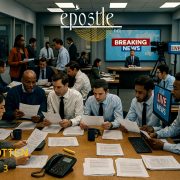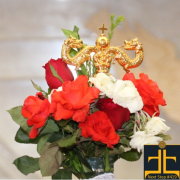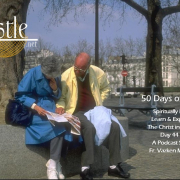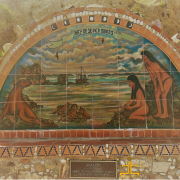The Move to Humanity
Cultural anthropologist Margaret Mead, who had studied various and many societies throughout the world, taught and advocated for cultural relativism, as a means by which we as people can better understand one another. With all the differences marked by cultures and society, the main ingredient for humanity is a basic one.
The story is told that one of Margaret Mead’s students asked her what she considered to be the first sign of civilization. The student expected the anthropologist to point to clay pots, tools for hunting or various societal or religious artifacts. Instead, Mead pointed to a healed femur found in an archeological site, dating back 15,000 years. This was the first evidence of civilization, she claimed.
A femur is the longest bone in the body, linking hip to knee. Take away some of the benefits of modern medicine and it takes about six weeks of rest for a fractured femur to heal. This particular bone had been broken and had healed. Mead explained that in the animal kingdom, if you break your leg, you die. You cannot run from danger, you cannot drink or hunt for food. In fact, if you were wounded in this manner, you became food for other animals. If you were to stand still for your bone to heal, you’d definitely be the main course on some other animal’s dinner menu. Another animal… that’s right. The question being asked was what separates us – humanity – from other animals? Why was this healed bone the key to understanding when we moved from animal to caring people?
A broken femur that has healed, explained Mead, is evidence that another person took time to stay with the injured person, bound the wound, carried the person to safety and tended to them through recovery. A healed femur indicates that someone has helped a fellow human, rather than abandoning them to save their own life.
“Helping someone else through difficulty is where civilization starts,” explained Margaret Mead.
Armodoxy has roots in untouched Christianity. Christ instructs us, “When you give a feast, invite the poor, the maimed, the lame, the blind. And you will be blessed.” You see, Christ’s invitation is an invitation to humanity.
Let us pray a prayer from St. Ephrem (4th Century)
I gaze upon You, Christ my Lord, and open my heart before You through fervent prayer, O Son of God, for humbling Yourself before Your creatures and taking on the role of a servant. You possess such love for humankind that we may attain divine wisdom. Have mercy on me, O benevolent God.

 2024 Fr. Vazken
2024 Fr. Vazken 2025 Epostle
2025 Epostle
 2026 Epostle
2026 Epostle 2023 Luna Beylerian
2023 Luna Beylerian




 2024 Fr. Vazken
2024 Fr. Vazken
Leave a Reply
Want to join the discussion?Feel free to contribute!